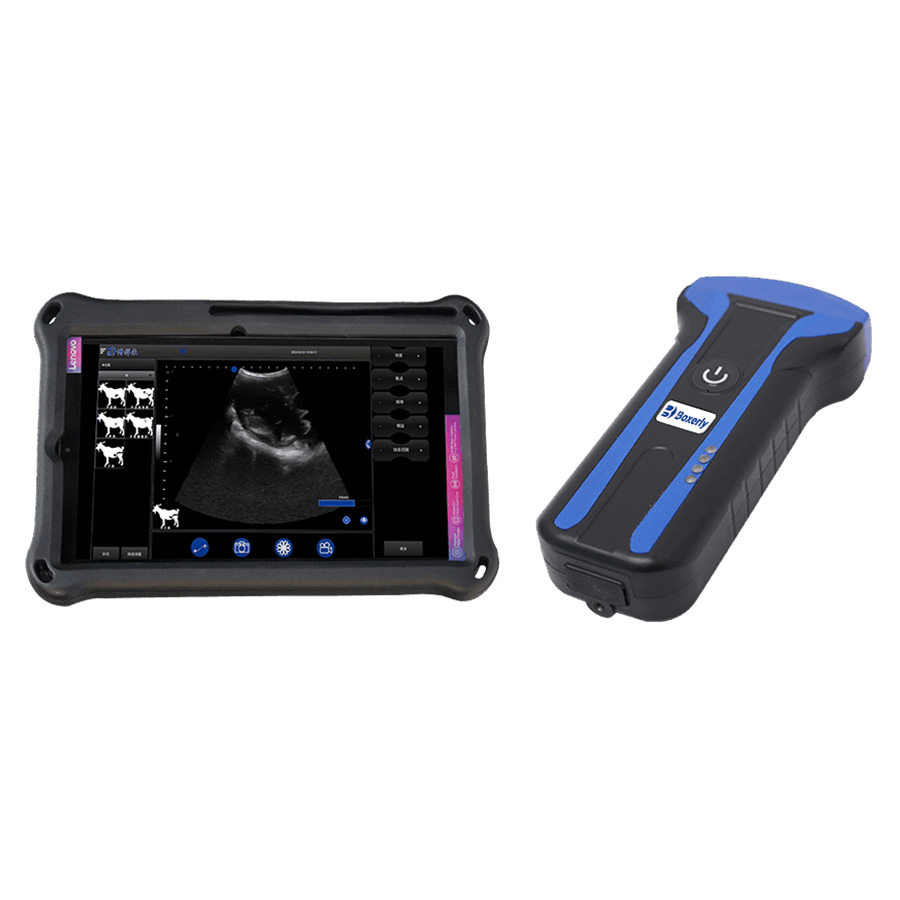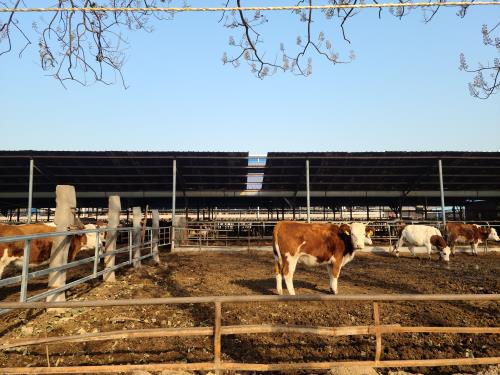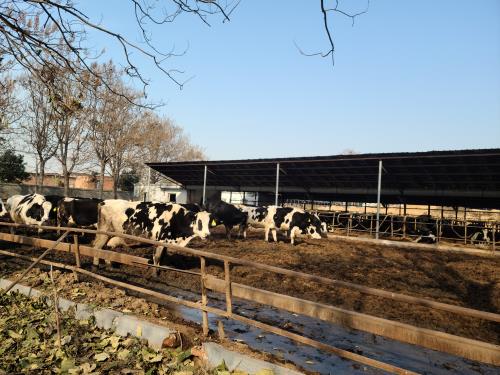You may have read a lot of books as you look forward to gaining more knowledge about your bundle of joy. But do you know what happens when your cat is pregnant?

The process by which a cat is ready for kittens is called "queening". A female cat can become pregnant when the mother cat is 4 months old, unless the mother cat has been sterilized to prevent this from happening. From spring to early fall, queens continue to have heat every 2 to 3 weeks, which allows them to reproduce more frequently. Cat pregnancy lasts about 63-65 days. So, at only 6 months old, a cat can have kittens.
Veterinary B-ultrasound to observe the state of a cat when it is pregnant
1. Feeling the cat's abdomen is sometimes useful, but not always accurate.
2. Animal B-ultrasound machine ultrasound can confirm pregnancy on the 16th day. Ultrasound cannot tell you how many kittens your cat is carrying.
3. Animal X-rays can determine the expected number of kittens, but they are not always accurate.
4. The abdomen of a female cat will become larger about 30 days after mating. Another symptom of pregnancy that occurs 2 to 3 weeks after conception is enlarged and reddened nipples (also called "pink"). It's rare, but during the initial stages of pregnancy, your cat may suffer from "morning sickness," which may manifest as a loss of appetite or vomiting. If this keeps happening, take your cat to your veterinarian. As hormones surge and changes occur in the uterus, your cat may show signs of fatigue. This phase eventually wears off after the first few weeks.
Like many other females in the animal kingdom carrying a bun in the oven (or a cat, with an average of 4 buns per litter), your cat may need extra food and calories while she's expecting. When her pregnancy is over, she'll eat about 1.5 times her normal diet, so make sure she has constant access to her normal food. Your veterinarian may recommend that you feed your pregnant cat kitten food during pregnancy and while she's nursing.
Viruses can be passed to kittens before they're born, so keep up with your cat's vaccination schedule. If your pregnant cat is on regular vaccinations and deworming/flea treatments or needs medication, check with your veterinarian first to make sure the treatment is safe for her. It's best to vaccinate before breeding, as most vaccines are not safe during pregnancy.
Tips for Preparing for the Big Day: Make your home a comfo
You may have read a lot of books as you look forward to gaining more knowledge about your bundle of joy. But do you know what happens when your cat is pregnant?
The process by which a cat is ready for kittens is called "queening". A female cat can become pregnant when the mother cat is 4 months old, unless the mother cat has been sterilized to prevent this from happening. From spring to early fall, queens continue to have heat every 2 to 3 weeks, which allows them to reproduce more frequently. Cat pregnancy lasts about 63-65 days. So, at only 6 months old, a cat can have kittens.
Animal B-ultrasound to observe the state of a cat when it is pregnant
1. Feeling the cat's abdomen is sometimes useful, but not always accurate.
2. Animal B-ultrasound machine ultrasound can confirm pregnancy on the 16th day. Ultrasound cannot tell you how many kittens your cat is carrying.
3. Animal X-rays can determine the expected number of kittens, but they are not always accurate.
4. The abdomen of a female cat will become larger about 30 days after mating. Another symptom of pregnancy that occurs 2 to 3 weeks after conception is enlarged and reddened nipples (also called "pink"). It's rare, but during the initial stages of pregnancy, your cat may suffer from "morning sickness," which may manifest as a loss of appetite or vomiting. If this keeps happening, take your cat to your veterinarian. As hormones surge and changes occur in the uterus, your cat may show signs of fatigue. This phase eventually wears off after the first few weeks.
Like many other females in the animal kingdom carrying a bun in the oven (or a cat, with an average of 4 buns per litter), your cat may need extra food and calories while she's expecting. When her pregnancy is over, she'll eat about 1.5 times her normal diet, so make sure she has constant access to her normal food. Your veterinarian may recommend that you feed your pregnant cat kitten food during pregnancy and while she's nursing.
Viruses can be passed to kittens before they're born, so keep up with your cat's vaccination schedule. If your pregnant cat is on regular vaccinations and deworming/flea treatments or needs medication, check with your veterinarian first to make sure the treatment is safe for her. It's best to vaccinate before breeding, as most vaccines are not safe during pregnancy.
Tips for Preparing for the Big Day: Make your home a comfortable place for the upcoming birth. If you normally let your cat go outside, stop in case the mother cat gives birth during a walk.
About 2 weeks before the due date, you may notice that your cat behaves differently when she goes into nesting mode. To help you, you can scan your home to find a good birthing spot for the mother cat. Find a medium-sized box with a low opening and cover it with newspaper, old towels, and soft blankets to create a relaxing area for the mother and future kittens.
You should place the nesting box in a quiet corner of the house. Let your pregnant cat visit it frequently before the birth so that the mother cat is accustomed to the area and feels comfortable.
Remember, you can guide your cat as much as you can and establish the final birthing spot, but the mother cat will do what the mother cat will do. If the mother cat wants to give birth in the laundry basket, behind the trash can, or at the back of the closet, the mother cat will.
When you notice the mother cat is in nesting mode, take the mother cat to the veterinarian for a final prenatal checkup. He can give you more information on how to prepare for the birth, check the health of the mother and kittens, and tell you what you can do if there is an emergency during the birth.
Two clues that the big day is approaching: cats usually stop eating 24 hours before giving birth and their temperature drops below 100 degrees Fahrenheit. You'll be meeting these kittens soon!
rtable place for the upcoming birth. If you normally let your cat go outside, stop in case the mother cat gives birth during a walk.
About 2 weeks before the due date, you may notice that your cat behaves differently when she goes into nesting mode. To help you, you can scan your home to find a good birthing spot for the mother cat. Find a medium-sized box with a low opening and cover it with newspaper, old towels, and soft blankets to create a relaxing area for the mother and future kittens.
You should place the nesting box in a quiet corner of the house. Let your pregnant cat visit it frequently before the birth so that the mother cat is accustomed to the area and feels comfortable.
Remember, you can guide your cat as much as you can and establish the final birthing spot, but the mother cat will do what the mother cat will do. If the mother cat wants to give birth in the laundry basket, behind the trash can, or at the back of the closet, the mother cat will.
When you notice the mother cat is in nesting mode, take the mother cat to the veterinarian for a final prenatal checkup. He can give you more information on how to prepare for the birth, check the health of the mother and kittens, and tell you what you can do if there is an emergency during the birth.
Two clues that the big day is approaching: cats usually stop eating 24 hours before giving birth and their temperature drops below 100 degrees Fahrenheit. You'll be meeting these kittens soon!









